We are the women of Norway. We are Swedish, Danish, Pakistani, Yugoslav, Bosnian, Sri Lankan, Vietnamese, Turkish-we are European, Asian, Middle Eastern, African, and more. We come here for as many reasons as there are people: to seek refuge, to pursue an education, to create new opportunities. And yet, our voices as minority women have become just that-a minority. Why is that? We know that we can effect change-how can we make that evident?
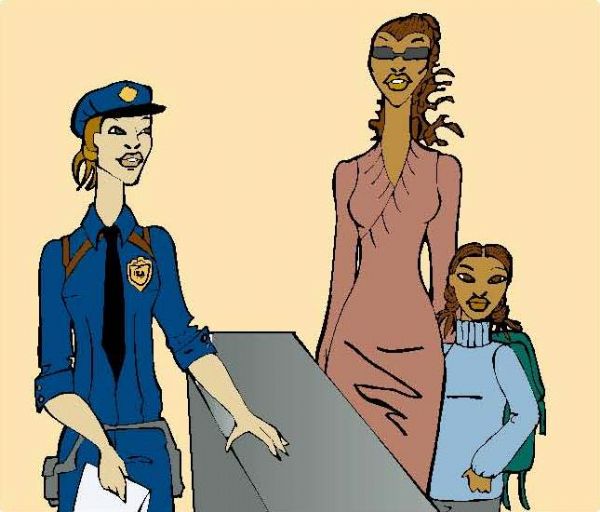
POLICE. Contact the nearest police station. All police districts in Norway have family violence coordinator that supports women who are subjected to violence.
View Larger >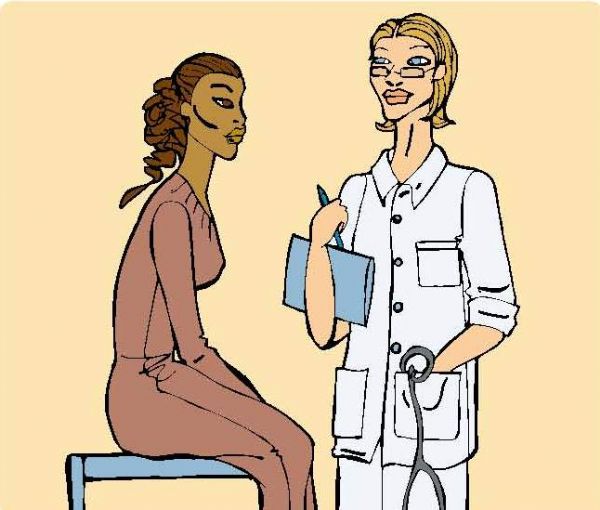
DOCTOR/HEALTH PERSONNEL: Contact a doctor or other public health personnel to assess any physical injuries or abuse. It is extremely important to report any physical abuse and to NOT just keep it to yourself. Many women do not tell public health personnel that bruises or scars are a result of violence perpetrated by the husband/partner or another assailant. They might either be afraid to involve strangers in family problems, or the assailant may have threatened them to not tell anyone about it. Public health personnel are trained to recognize signs of violence and to provide the victim with the health she needs.
View Larger >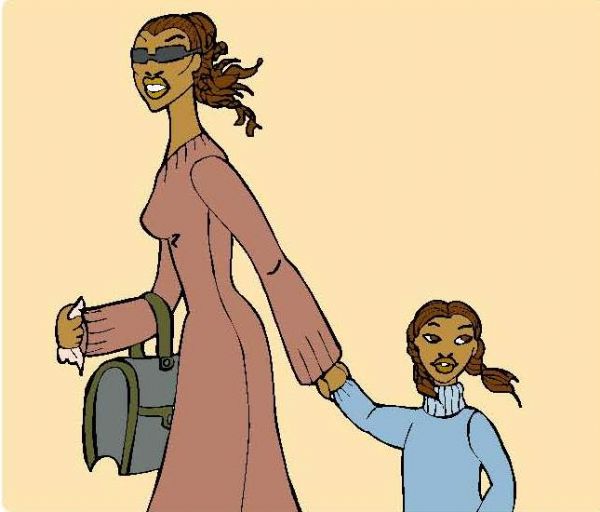
CRISIS CENTERS. Contact a crisis center for assistance. The crisis centers are able to help women and children that have been subjected to violence with a temporary, safe place to stay. The crisis centers can also assist with finding a lawyer, new residence and provide other practical aid.
View Larger >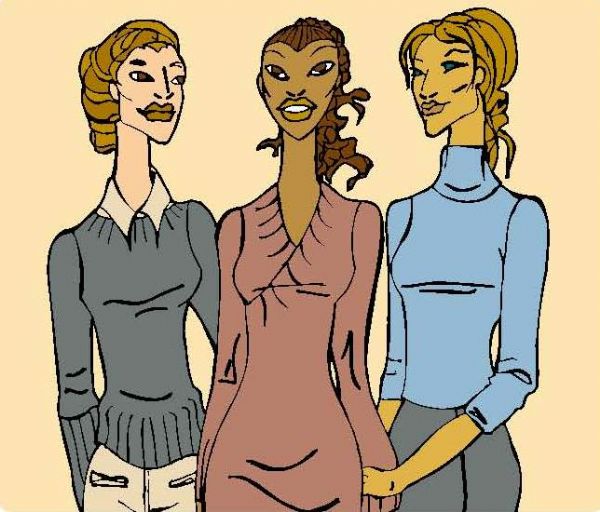
ORGANIZATIONS. Contact voluntary organizations, such as the MiRA Centre, for information on legal rights, to meet other women in the same situation, for moral support or to receive help to work through traumatic experiences such as violence and abuse.
View Larger >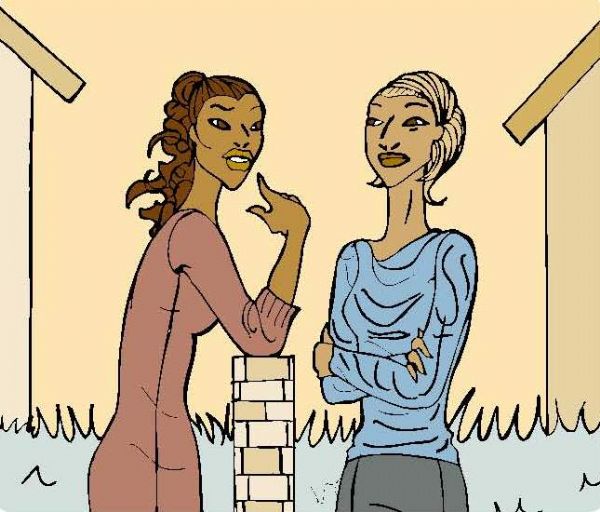
NEIGHBORS/FRIENDS. Contact your neighbors and friends for support. Research in many countries has revealed that it takes a long time before women dare to speak to others about violence in the family. As long as the woman keeps quiet about the situation, the assailant is given the power to continue the violence. It is therefore very important to speak to someone. Violent behavior cannot be justified, and the attacker must not be protected for the sake of family honor or the culture. Protecting family honor is everyone's responsibility, both women and men. Women must not bear the burden alone by accepting family violence.
View Larger >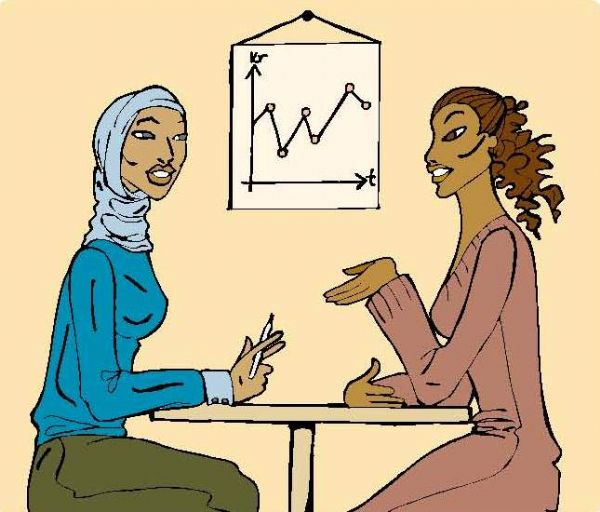
SOCIAL WELFARE. Contact your local social welfare office if you want to break out of a violent marriage, but are not able financially to start a new life independently.
View Larger >We, at the MiRA Centre for Black, Immigrant and Refugee Women, work to unite the women of Norway. As the drawings in our "Say No to Violence Against Women!" pamphlet reflect, minority women in Norway are active agents in their own lives. Not only do we show these women as empowered community members, we also arm them with resources that can help them network with peers and seek legal and social services along the way. We offer conferences for women and girls, youth activities, self-organizing groups, and meeting places for young women. Our pamphlet and other materials are offered in many languages, so that women speaking languages other than Norwegian can access our resources and seek assistance.
One issue we encounter consistently at the MiRA Centre is women struggling with the three-year rule. When immigrating to Norway, a woman's citizen status depends on her husband's. She can't get a permanent resident permit until after she has been married and living in Norway with her husband for at least three years. This rule has lead to a high number of women enduring domestic abuse during that three-year period out of fear of deportation. Not to mention that the Norwegian government requires evidence of abuse if these women actually do decide to divorce their husbands. Given that many women come to Norway because of its renowned reputation for valuing civil liberties, it is ironic that many feel they must tolerate unhealthy relationships in order to avoid being sent back to less stable places. What can we at the MiRA Centre do to help?
Follow these powerful young women in the panels as they discover the resources they need in face of domestic violence. They're shown reporting cases of domestic violence to the police, getting medical aid, seeking help at crisis centers and organizations, and sharing their stories with neighbors, friends and social workers. As you can see on the left, we encourage women to begin an active dialogue both with appropriate medical and legal services, and between friends and neighbors. Norway can indeed be a haven for social justice, if, as a community, we listen to each others' needs and provide the best support possible.
We want to show that women of color in Norway identify themselves. In a country renowned internationally for its high standard for civil rights, it may seem surprising that many women refugees and immigrants of color in Norway still struggle to find a public voice. Although the government has made great strides to include women in policy-making positions, there is still a degree of innate exclusion when it comes to immigrant and minority women's inclusion in Nordic politics: Women of color rarely get to represent themselves politically. We, together with the women and families that frequent our Centre, aim for change. Together we can sketch out the possibility for a new reality for refugee and immigrant women in Norway.
We do this for, and because of, the women of Norway.







